Day 1 :
- Cell Therapy
Session Introduction
Laila M. Montaser
Menoufia University, Egypt
Title: Innovative advanced approaches in cartilage tissue engineering
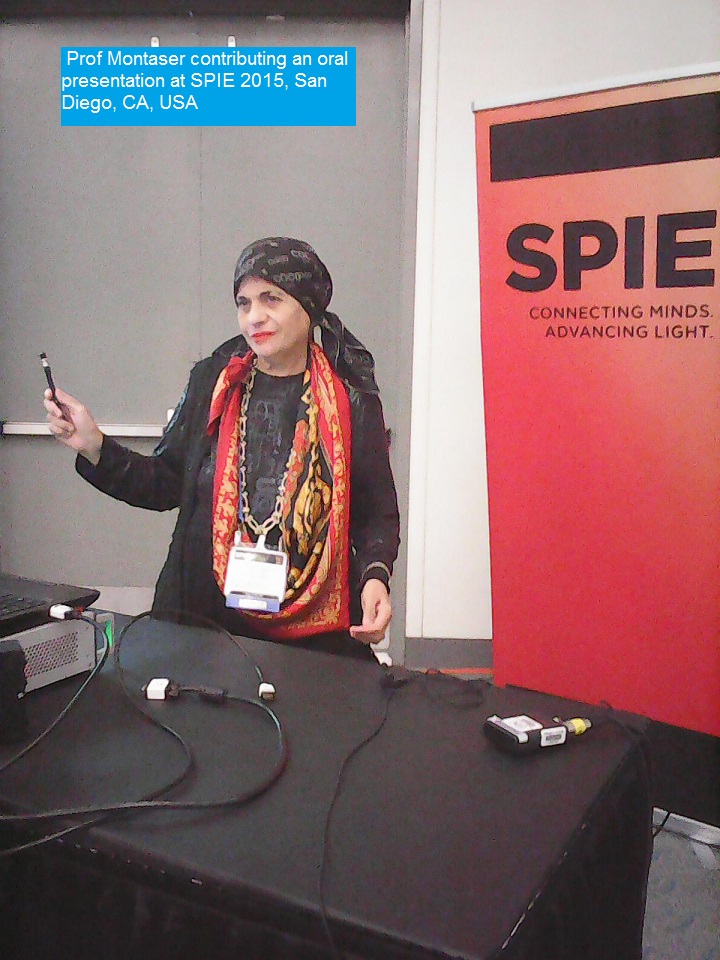
Biography:
Prof. Laila M. Montaser is distinguished Prof. of Clinical Pathology. Chair, Renowned Scientist Stem Cell, Regenerative Medicine, Nanotechnology and Tissue Engineering (SRNT) Research Group. She served as the Chair, Founder leader of Clinical Pathology Department, and Founder of Regenerative Medicine, application of Nano medicine and Tissue Engineering at Menoufia Faculty of Medicine. She supervised more than 47 M. Sc. theses and 13 MD theses. She has more than 123 International publications in world journals and global conferences. She is the nominator of Council of Menoufia University to TWAS prize in Medical Sciences and to award of Nano Science Research Excellence. She gained 3 Awards: - Medal of Merit for the ideal Doctor from Egyptian Medical Syndicate in 1986, 1998, and 2002. She is uniquely trained and situated and has a philosophy on how to manage research specifically with Stem Cell, Regenerative Medicine, Nano medicine and Tissue Engineering.
Abstract:
Statement of the Problem: Due to their weak ego-restoration capacity, cartilage defects that result from joint injury, aging, or Osteoarthritis (OA), are the most often irreversible and are a significant reason for joint suffering and persistent inability. Management of OA is ultimately symptomatic and contemporary ways do not fully retrieve hyaline cartilage and may lead to the occurrence of excessive trophic cartilage. A crucial requirement occurs for influential processes to spur cartilage regeneration and merging, and tool up a solid, long-lasting replacement for the primary cartilage. The lack of efficient modalities of treatment has prompted research into tissue engineering for an optimum treatment. The purpose of this study was to show a cornerstone stress on our experimental labor and present our innovative technologies using stem cells and Nano scaffolds for renovation of articular cartilage.
Methodology & Theoretical Orientation: Innovative therapeutic approach to encourage and enhance cartilage regeneration was being implemented. Stem cells isolated from the bone marrow of an animal model and expanded under in vitro culture. Cartilage defect was found on the articular cartilage of the animal model, and stem cells were transplanted in Nano scaffolds then injected for cartilage repair.
Findings: The Nano scaffolds provided a platform where a larger volume of tissue maybe produced. The use of the polymer scaffolds improved cartilage tissue repair.
Conclusion & Significance: Application of a novel Nano scaffold for stem cells delivery was very dynamic to regenerate cartilage tissue. Our pilot study spotlighted the development of new therapeutic solutions for destroyed cartilage tissues. Developing contemporary cartilage therapies toward achieving a successful approach for curing cartilage agonies could improve the quality of new advanced cartilage by applying tissue engineering via the use of stem cells, new Nano-fabricated scaffolds and materializing nanotechnology.
Michali Ponizovsky
Head of Labaratory of Biochemistry Toxicology, Ukraine
Title: Link immuno therapy in healing mechanism of prolonged medical starvaticon 42 – 45 days with very small dosage and weak cytotoxic substances
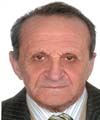
Biography:
M. R. Ponizovskiy, PhD, retired from the position of Head of the Toxicological and Biochemical Laboratory of the Kiev Regional P/N Hospital, Ukraine. Now living in Germany, he is a member of the Society of Inventors and holds the German protection of the invention [Gebrauchsmusters] of a new method of blood cell separation and allocation, under consideration for a German patent. He studied at the Kiev National Institute of Post Diploma Education and the Lvov National Medical University, faculties of laboratory clinical diagnostics, laboratory clinical biochemistry, laboratory toxicology. Dr. Ponizovskiy has published several scientific articles in the journals Bulletin of Experimental Biology and Medicine
Abstract:
Treatment by “Prolonged medical Starvation (during 42-45 days)” causes considerable decrease almost of all depots of an organism exhausting organism’s fat and hydrocarbonic depots leading to competition between cancer tissue and an organism for use of remained decreased depot. Protective forces of the organism become stronger due to support with herbal extracts, delivering vitamins and microelements into organism. Increase of fat metabolism from fat depot leads to augmentation GPX and PHGPX in all cells of an organism which neutralize redundant superoxide [O*] and ROS/H2O2/free radicals in G1/S phases cellular cycle of cancer cells cycle suppressing excessive proliferative processes of cancer cells. It causes elimination irrepressible proliferative processes and cancer cells’ depression. Thus influences Link ImmunoTherapy in healing mechanism of “Prolonged medical Starvaticon 42 – 45 days with very small dosage weak cytotoxic substances” on depressed cancer cells promote penetration through cellular walls of cancer cells the anticancer antibodies against oncoviral substances for suppression Mitosis-Meiosis phase of cancer cellular cycle where haploid Meiosis phase of viral cellular cycle is deprived. Expression Mitosis cellular cycles of all cells incite T lymphocytes via appearance produced immunoglobulins CTLA-4 and PD-1, and resonance waves of cellular capacitors T memory cells learn and remember waves function of viral substances containing in separated haploid Meiosis phase. T memory cells exert T helper cells, and T helper cells stimulate T killer cells for production antibodies against cancer viral substances which is deprived barriering covalent bonds between Mitosis and Meiosis causing loss viral stem cells function.
Thus therapeutic targets of new method cancer treatment using combination immunotherapy with small dosage weak cytotoxic substances prevent recurrence of cancer disease after long anticancer chemotherapy and resistance to anticancer drugs versus intensive anticancer chemotherapy with great dosage of cytotoxic drugs and is more efficient than modern methods cancer treatments with great dosage cytotoxic drugs.
Roni Moya
International University of Bio-Regenerative Science (IUBRS) – Delaware - USA
Title: M. R. Ponizovskiy, PhD, retired from the position of Head of the Toxicological and Biochemical Laboratory of the Kiev Regional P/N Hospital, Ukraine. Now living in Germany, he is a member of the Society of Inventors and holds the German protection of the invention [Gebrauchsmusters] of a new method of blood cell separation and allocation, under consideration for a German patent. He studied at the Kiev National Institute of Post Diploma Education and the Lvov National Medical University, faculties of laboratory clinical diagnostics, laboratory clinical biochemistry, laboratory toxicology. Dr. Ponizovskiy has published several scientific articles in the journals Bulletin of Experimental Biology and Medicine
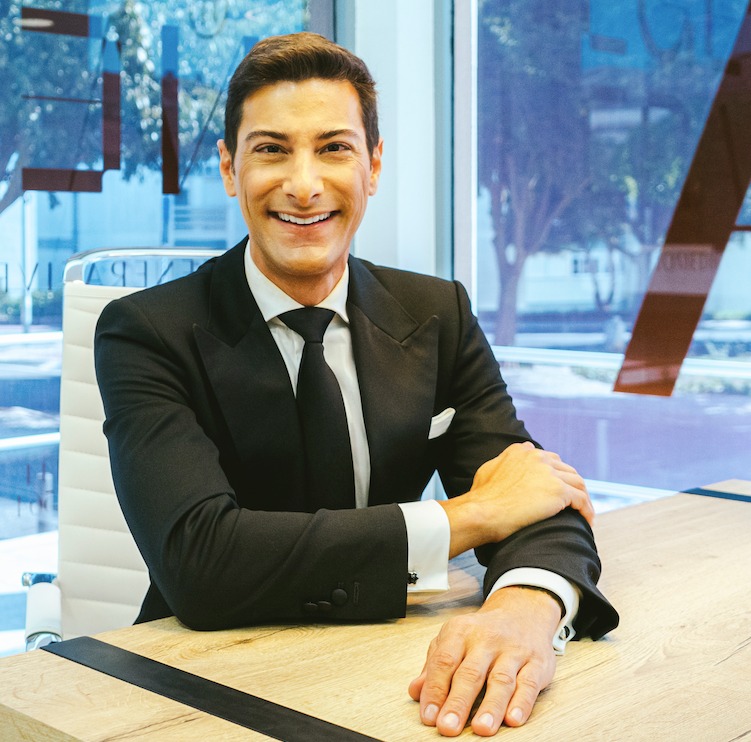
Biography:
Roni Moya is Biomedical Doctor. MSc in Cell and Molecular Biology / Transplantation Immunology - Coimbra University. MSc in Advanced Nutrition - Barcelona University. MSc in Anti-Aging Medicine – Univeristy of Sevilla. PhD Program in Biomedicine / Immunology - Gulbenkian Institute of Science. Researcher / MSc / PhD Advisor at IUBRS – International Univeristy of Bio-Regenerative Science – USA. Biomedical Doctor in Innovation and Technology – European Wellness Academy (EWA). CEO Regenera Regenerative Biomedicine – Portugal
Abstract:
Statement of the Problem: Immunotherapy, including the complementary immunotherapy for cancer, can be categorized as either specific or nonspecific, both with the aim to enhance the immunity against tumors. A proper immunotherapy approach must address a patient’s individual features of complexity such as tumor’s immune suppressive and pro-inflammatory aspects, antigen heterogeneity and immunogenicity. The Active Autologous Specific Immunotherapy (ASI) is capable of rearming and boosting the immune system against cancer by exclusively regulating patient’s own immune-modulatory molecules. Adding as well as integrative immunotherapy to increase the host defenses against cancer, cell therapists in Switzerland and Germany developed the Mitochondrial Peptides Immune Factors, which is composed of mitochondrial rabbit lymphocytes leukocyte dialysate extracts peptides, presented in nano molecules (3 nanometers with 10kDa) that serve to cause antigen-specific T-lymphocyte response. Once activated, the lymphocytes clones differentiate into several types of cells, including natural killers, helpers, suppressors, regulatory and B cells. The aim of this work is to discuss the positive aspects of cell therapy as an advanced supporting tool to approach cancer.
Methodology & Theoretical Orientation: Five distinct oncological cases are presented with the integrated support of specific autologous immunotherapy in combination with mitochondrial peptide immune factors; associated with conventional hospital protocol treatments.
Findings: the ASI and mitochondrial immune peptides improved the immune status of all patients and their overall life quality by reducing pain, fatigue and infections recurrences. Furthermore, the ASI and mitochondrial treatment did not cause any negative side effects nor interfere whatsoever with the chemotherapy protocol.
Conclusion & Significance: In conclusion, although further studies are urgently required in the field, ASI and mitochondrial peptides immunotherapy offers an interesting and safe strategy as integrative personalized immunotherapy
Vahideh Nasr
Shahid Beheshti University of Medical Sciences, Tehran, Iran.
Title: Allogenic Mesenchymal Stem cell Therapy for CADASIL patient: first clinical Case Report
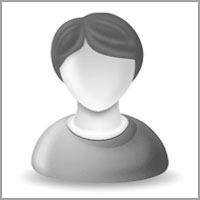
Biography:
Vahideh Nasr working at Shahid Beheshti University of Medical Sciences, Tehran, Iran.
Abstract:
CADASIL, Cerebral Autosomal Dominant Arteriopathy with Subcortical Infarcts and Leukoencephalopathy, is an inherited small vessels disease that characterized by central nervous system dysfunctions caused by mutations in the Notch-3 gene. Clinical manifestations accrue due to brain’s vasculopathy, neurodegeneration, and immune system reaction. We describe here an effective method for treatment of CADASIL by using mesenchymal stem cell therapy. A CADASIL case, 36 years old man, neuroimaging and genetic analysis for Notch-3 confirmed the diagnosis, is reported. In the present case, two stem cell injections have been performed at intervals of three weeks. The patient had no significant complications in the post-transplant period. No immediate or delayed side effects following MSC infusion were observed. He developed neither malignancy nor unwanted cells or any infectious complications 18 months after the transplantation, we performed a Cerebral MRI showed stable cerebral lesions and his gate and balance improved. Anti-HLA Antibody measurement confirmed that the patient's immune system was not stimulated by injected cells.With regard to his neurological symptoms, Scale for the assessment and rating of ataxia (SARA), The Multiple Sclerosis Functional Composite measure (MSFC), Quality of Life Assessment (QOL), and Cognitive Functioning Status (ACE-R), the patient did not has further deterioration of his previous clinical status in the follow up period of 18 months.
Further studies need to be performed to show the generalizability of the results.
Muhammad Usman
Former Director General of Agricultural Research System, Pakistan
Title: stem cell, Biology and regenerative medicines is the major industry for the development of health, basic need of daily life, create employment, generate income, stronger economy, reducing financial crises, global Poverty and hunger in the developing countries of the world particularly in south Asia.
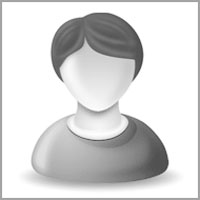
Biography:
Mr. Muhammad Usman, Former Director General of Agricultural Research System, Government of Pakistan who retired from service after a spotless career of about 32 years with senior level experience on research and development of integrated agricultural production, industries, Agriculture & Horticulture and bioenergy on a sustainable way. Mr. Usman is consider as the senior most scientist in the world, always participated in the international conferences as a plenary speaker, keynote speaker, renowned speaker, organizing committee member as well as moderator of the conferences around the world. Mr. Usman established “Prominent Agro Based Industries, Agro Based Industries and Consultancy SDN BHD” in Malaysia and “Foundation for Rural Development in Pakistan”, with primarily aims to work on integrated agricultural project for Rural Development through improvement in agriculture and consultancy services to the formers at Malaysia.
Abstract:
The aims of presentation consist of stem cell, biology, regenerative medicines, health, employment, income, crises, economy, life were studied and reported that stem cell, Biology and regenerative medicines is the major industry for the development of health, basic need of daily life, create employment, generate income, stronger economy, reducing financial crises, global Poverty and hunger in the developing countries of the world particularly in south Asia. The study reported that an undifferentiated cell of a multicellular organism which is capable of giving rise to indefinitely more cells of the same type, and from which certain other kinds of cell arise by differentiation. The role of stem cells is, under certain physiologic or experimental conditions, they can be induced to become tissue- or organ-specific cells with special functions. In some organs, such as the gut and bone marrow, stem cells regularly divide to repair and replace worn out or damaged tissues. The study further reported that the four different types of stem cells discussed in this article are 1. Totipotent (or Omnipotent) stem cells. 2 Pluripotent stem cells. 3 Multipoetent stem cells. similarly there are 2 types of stem cells, embryonic and adult stem cells. Innercells-pluripotent can become almost all types of cells and are taken from an early embryo stage. Adult stem cells are typically called multipotent cells like bone marrow cells that can produce a wide range of different blood cells. Similarly, the study also reported that regenerative medicine is the branch of medicine that develops methods to regrow, repair or replace damaged or diseased cells, organs or tissues. Regenerative medicine includes the generation and use of therapeutic stem cells, tissue engineering and the production of artificial organs. The study further reported that the uses of regenerative medicine involves delivering specific types of cells or cell products to diseased tissues or organs, where they will ultimately restore tissue and organ function. This can be done through cell based therapy or by using cell products, such as growth factors. Bone marrow transplants are an. Similarly, the importance of regenerative medicine is a new interdisciplinary field aiming to provide safe and reliable ways to repair, restore, or replace damaged tissues or organs. The two main components of Regenerative Medicine are stem cell therapy and Tissue Engineering. The study reported that the total countries available in the world are 225, consist of (Developed countries = 49, developing countries = 150, observer state = 4, state without partial recognition = 8, unrecognized state = 14). Similarly, South Asia comprises the countries of Pakistan, Bangladesh, India, Bhutan, Maldives, Nepal and Sri Lanka. In the light of above study, it is proposed that Nutritional Science and Food Chemistry should be commercialized for the development of health, basic need of daily life, create employment, generate income, stronger economy, reducing financial crises, global Poverty and hunger in the developing countries of the world particularly in south Asia.
- Gene Therapy
- Advanced Gene Therapeutics
